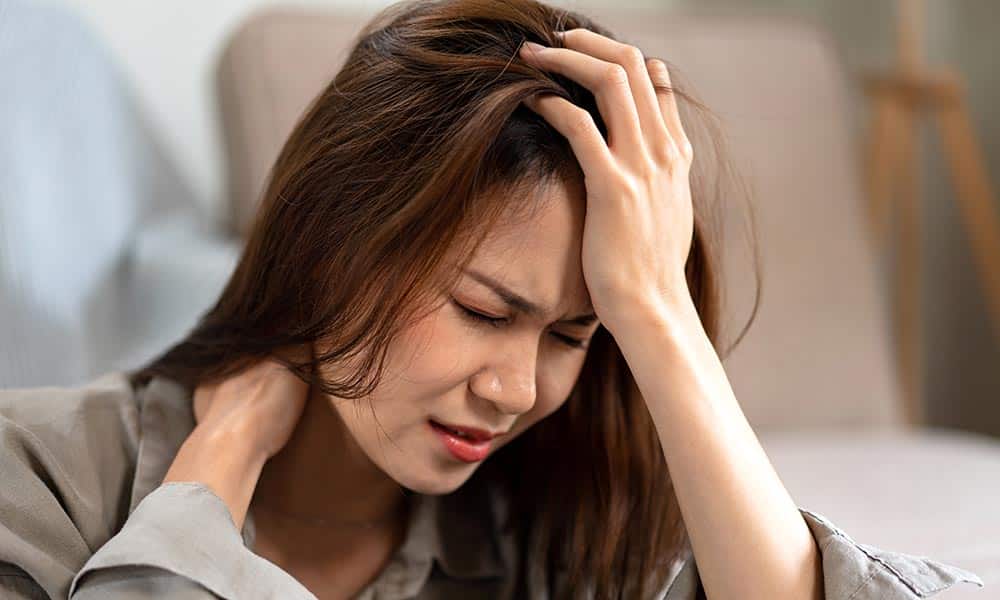Yes. It is possible to overdose on gabapentin. Overdose signs include slurred speech, extreme drowsiness, double vision, and diarrhea. Gabapentin overdose is rarely life-threatening when taken alone but can be serious, particularly in combination with opioids, alcohol, or other CNS depressants, and 911 should be called immediately.
There is increasing evidence of gabapentin abuse. As a result, some states have classified it as a controlled substance, though it is not federally regulated. The risk of overdose is higher for people who misuse Gabapentin or become addicted to it, either physically or psychologically.
What Is Gabapentin?
Gabapentin is a member of a class of medications known as anticonvulsants. It is FDA-approved to treat seizures and partial seizures, and nerve pain associated with shingles. Gabapentin is also known by the brand names Neurontin, Gralise, and Horizant.
Gabapentin is not considered a controlled substance under the U.S. Controlled Substances Act, but several states have classified it as a controlled substance under state law. [1] If prescribed gabapentin, medication safety protocols should be closely followed. Never take more gabapentin than prescribed.
Side Effects of Gabapentin
There are many side effects associated with gabapentin, and some are more serious than others. Individuals who are concerned about any particular side effect of this drug should contact their health care provider as soon as possible.
Common Side Effects of Gabapentin
People taking gabapentin may experience common side effects such as: [2]
- Dizziness
- Fatigue
- Fever
- Difficulty talking
- Weight gain
- Nausea
- Vomiting
- Headache
- Loss of memory
- Recurring infection
- Double vision
- Abnormal eye movements
- Tremors
- Loss of coordination
- Unsteadiness
If any of these side effects become severe or persist for more than a few days, discuss them with a health care provider.
Serious Side Effects of Gabapentin
Serious side effects of gabapentin should be reported to a doctor immediately. In some cases, it may be necessary to seek emergency medical attention. These serious side effects may include: [3]
- Hoarseness
- Difficulty swallowing
- Difficulty breathing
- Rash
- Itchy skin
- Seizures
- Bluish colored lips, skin, or fingernails
- Extreme drowsiness
- Confusion
Gabapentin Drug Interactions
There is a long list of possible drug interactions that can occur when taking gabapentin. Individuals should be transparent with health care providers about any other drugs they are taking, including prescription medications, over-the-counter medications, herbal supplements, alcohol or marijuana, and any other recreational drugs. The following list of drugs that could potentially cause an adverse reaction with gabapentin does not constitute a complete list: [4]
- Cannabis
- Xanax
- Lorazepam
- Naproxen
- Zolpidem
- Cimetidene
- Hydrocodone
- Morphine
- Buprenorphine
- Oxycodone
- Alcohol
The use of gabapentin and opioid medications or alcohol can be particularly risky and may result in a fatal overdose.
Gabapentin Abuse and Addiction
Although gabapentin was initially considered to have low abuse potential, emerging evidence indicates it carries a risk of misuse, particularly among individuals with a history of substance use disorder. This risk is higher for people with a history of mental health conditions, as well as those with current or past substance use disorder. [5]
Gabapentin has been reported to potentiate the effects of opioids, including euphoria, which may contribute to its misuse. [6] Many people who abuse gabapentin may also have an opioid use disorder (OUD). This combination can be particularly dangerous. In the case of polysubstance abuse and addiction, the risk of overdose from both drugs is significantly higher. It can also make treatment more challenging and increase the chance of relapse.
Signs of Gabapentin Addiction
People who develop a physical or psychological dependence on gabapentin may experience the following symptoms of addiction, also known as substance use disorder (SUD): [7]
- Needing higher doses of gabapentin to achieve the same effect
- Trying unsuccessfully to cut back or stop using gabapentin
- Missing deadlines or failing to meet other responsibilities due to gabapentin use
- Continuing to use gabapentin despite it causing problems at work, school, or home
- Continuing to use gabapentin even though it’s exacerbating physical or mental health conditions
- Using gabapentin in a dangerous situation
- Intense cravings for gabapentin
- Experiencing withdrawal symptoms when not taking gabapentin
- Taking a higher dose of gabapentin than intended or for longer than intended
- Spending an excessive amount of time obtaining, using, or recovering from gabapentin use
According to the American Psychiatric Association, two or three of the symptoms above can indicate a mild substance use disorder. Four or five symptoms point to a moderate substance disorder, while six or more symptoms warrant the diagnosis of severe substance use disorder.
It is possible to be addicted to more than one drug at the same time. The DSM-5 does not use the term ‘polysubstance abuse’ as a formal diagnosis, but recognizes that individuals can be diagnosed with multiple substance use disorders when more than one substance is involved. Many people use gabapentin to increase the effects of opioids. This is a dangerous practice that can lead to not only addiction, but a fatal overdose as well.
Gabapentin Withdrawal Symptoms
Experiencing withdrawal symptoms is an indication of a physical dependence on gabapentin. These withdrawal effects may include: [8]
- Excessive sweating
- Agitation
- Anxiety
- Nausea
- Insomnia
- Disorientation
- Headache
- Restlessness
- Increased heart rate
- Irregular heart rate
- Confusion
- Seizures
Gabapentin Overdose Symptoms
It is possible to overdose on gabapentin. The risk of overdose increases for people who misuse gabapentin or have developed an addiction to the drug. Signs of a life-threatening gabapentin overdose include: [9]
- Slurred speech
- Drowsiness
- Double vision
- Diarrhea
If signs of an overdose are observed, emergency services should be notified immediately. Call 911 and the poison control helpline.
Is a Gabapentin Overdose Fatal?
Gabapentin overdose is rarely fatal when taken alone, but fatalities have occurred, especially when combined with other central nervous system depressants like opioids or alcohol. The risk of a deadly overdose is increased when gabapentin is mixed with other substances such as alcohol or opioid drugs.[10] In any case, a gabapentin overdose should be treated as a life-threatening emergency.
Gabapentin Addiction Treatment
If a loved one has developed an unhealthy relationship with gabapentin, help is a call away. Addiction treatment can be challenging, but qualified rehabilitation and treatment centers have the tools necessary to promote recovery. Evidence-based therapies such as medical detoxification, inpatient treatment, mental health services, and relapse prevention support individuals as they take strides towards a healthier and more fulfilling life.













































